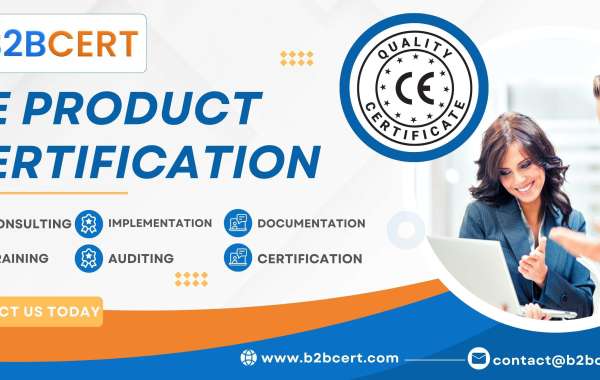CE Certification in Nigeria has emerged as a pivotal standard for organizations worldwide, particularly those eyeing the European market, to guarantee product compliance with stringent health, safety, and environmental regulations. Beyond a mere stamp of approval, obtaining CE Certification reflects a strategic commitment to meticulous processes, transparency, and meeting the specific requirements of European directives.
Benefits of CE Certification
Enhanced Product Compliance: CE Certification assures consumers that products adhere to rigorous European Union (EU) standards, identifying and mitigating potential risks throughout the manufacturing process. This instills confidence in the safety and reliability of the products.
Expanded Market Access: CE Certification in Chad serves as a gateway to European markets by demonstrating compliance with EU directives. It assures consumers, regulators, and trading partners of adherence to internationally recognized quality and safety standards, facilitating market penetration and growth opportunities.
Improved Operational Efficiency: Implementing CE Certification principles streamlines operations, leading to enhanced efficiency and cost savings. By identifying critical compliance points and implementing preventive measures, organizations can minimize risks and mitigate the likelihood of costly recalls or incidents.
Enhanced Brand Reputation: CE Certification in Mumbai distinguishes organizations by showcasing their dedication to product safety and quality. It enhances brand reputation and credibility in the marketplace, fostering trust among consumers, retailers, and stakeholders.
Industries Benefiting from CE Certification
Manufacturing Sector: Manufacturers across various industries seek CE Certification to ensure compliance with EU regulations. Certification covers diverse product categories, including electronics, machinery, toys, and medical devices, enhancing consumer confidence and market competitiveness.
Automotive Industry: Automotive manufacturers and suppliers obtain CE Certification to meet EU directives concerning vehicle safety, emissions, and environmental protection. Certification underscores a commitment to producing safe and environmentally friendly vehicles, essential for market acceptance.
Construction and Building Materials: CE Certification in Jordan is crucial for construction and building material suppliers, ensuring compliance with EU standards for structural integrity, safety, and environmental performance. Certification enhances product credibility and facilitates access to European construction markets.
Understanding the Costs of CE Certification
The cost of CE Certification varies based on factors such as the complexity of the product, the involvement of notified bodies, and the extent of testing and documentation required. Organizations can seek guidance from CE certification bodies or consultants specializing in regulatory compliance to obtain detailed cost estimates and navigate the certification process effectively.
How to Connect with CE Certification Consultants?
For expert assistance in obtaining CE Certification in Zimbabwe and navigating EU regulatory requirements, our team of experienced consultants is dedicated to providing comprehensive support. Interested parties can reach out to us through the contact form on our website at b2bcert.com or via email at contact@b2bcert.com. Whether in manufacturing, automotive, or construction, our consultants are committed to facilitating CE Certification and ensuring market success.




